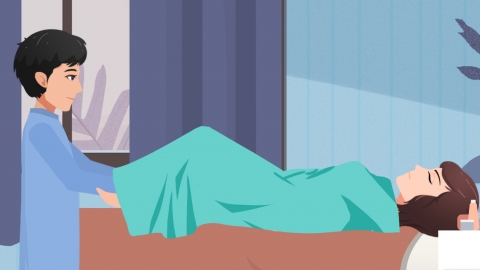What causes thin uterine walls?
Generally, thin uterine walls may be caused by factors such as aging, congenital developmental differences, multiple uterine cavity surgeries, endocrine disorders, and premature ovarian failure. It is recommended to seek timely medical consultation to identify the underlying cause and receive appropriate treatment under a doctor's guidance. Detailed explanations are as follows:

1. Aging: With increasing age, ovarian function declines and estrogen secretion decreases, affecting endometrial growth and resulting in a thinner uterine wall. Adjusting diet by consuming more estrogen-rich plant foods such as legumes and nuts, along with maintaining regular sleep patterns, may help delay ovarian function decline.
2. Congenital developmental differences: Some women naturally have thinner uterine walls due to underdeveloped uteri. If menstrual cycles are regular and no discomfort is experienced, this is considered normal. No special treatment is required, but regular gynecological examinations are recommended to monitor uterine condition.
3. Multiple uterine cavity surgeries: Procedures such as induced abortion and curettage can damage the endometrium, and repeated operations may cause thinning of the uterine wall, often accompanied by reduced menstrual flow. It is important to minimize the number of uterine cavity surgeries and follow medical advice to use medications such as estradiol valerate tablets, progesterone soft capsules, and Kuntai capsules post-surgery to promote endometrial repair.
4. Endocrine disorders: Chronic late-night habits and high mental stress can lead to insufficient estrogen secretion and progesterone imbalance, affecting endometrial proliferation and resulting in a thinner uterine wall, often accompanied by irregular menstrual cycles. Stress can be relieved through exercise and meditation. If necessary, follow medical advice to use medications such as conjugated estrogen tablets, dydrogesterone tablets, or combined short-acting oral contraceptives to regulate hormone levels.
5. Premature ovarian failure: Premature ovarian decline leads to a sharp decrease in estrogen secretion, preventing endometrial growth and resulting in a thinner uterine wall, often accompanied by symptoms such as hot flashes and amenorrhea. Patients may follow medical advice to use medications such as nylestriol tablets, progesterone injection, and Kunling pills to alleviate symptoms and maintain normal endometrial status.
In daily life, excessive fatigue should be avoided and a positive mood maintained. Pay attention to balanced nutrition and increase intake of protein- and vitamin-rich foods such as lean meat, fish, and fresh fruits and vegetables. At the same time, take proper contraceptive measures to reduce unintended pregnancies and uterine cavity surgeries, thus protecting the endometrium.






